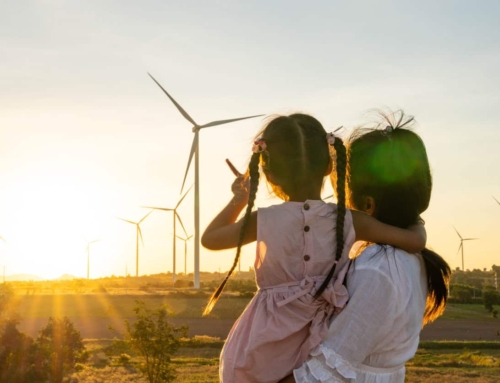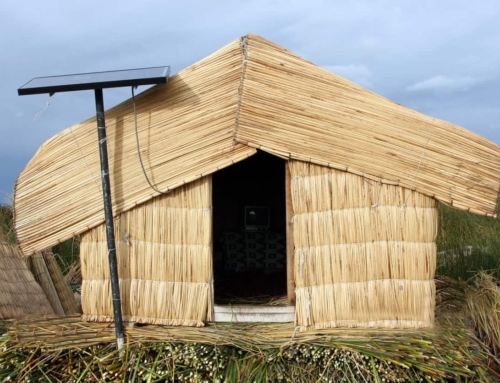Really?
This is a recent headline from a joint Washington Post and Kaiser Family Foundation survey. Both are reputable organizations. Yet part of the conclusion is misleading and based on a biased question from fossil fuel talking points. The takeaway from this headline seems to be that climate action is so expensive that Americans won’t pay for it. Or by extension, that action on climate is hopeless. This is misleading, but it’s a good example of how certain narratives drive our thoughts and feelings on the climate crisis.
What question did they ask in this Green New Deal survey? “Would you support or oppose a Green New Deal if you heard it would do the following? Increase federal spending by trillions of dollars.” Only 30% of respondents said they would. Duh?
What result would they have gotten if they had asked, “What would you spend to save your child’s life?” Duh? This is also a biased question, but suddenly, cost is not quite as important. The question dictates the answer. Good surveyors take pains to avoid biasing their results.
There are two Republican talking points on the Green New Deal. The first is that it will require extreme personal sacrifice; i.e. they are going to take your hamburgers away, and the second is that it is going to cost trillions. One number pulled from an ass-tweet by a conservative from the Manhattan Institute “estimated” this number to be $100 trillion. Never mind that this is a fossil fuel funded organization and that the details of the Green New Deal vision still need to be fleshed out.
These talking points activate two entrenched narratives that most Americans unconsciously buy into to. The first is the helplessness and sacrifice narrative based on fear and risk aversion. The climate crisis will undoubtedly take some sacrifice. We’ve been pumping trillions of tons of carbon pollution into our atmosphere for the last 100 years while ignoring the consequences. But it also represents the biggest opportunity of our lifetimes. The second is the economic narrative, that everything must be measured against the welfare of the “economy.” A subset of this narrative is that all government spending (read costs) except for the military is bad.
The fear-based helpless-sacrifice narrative is used to make you afraid and powerless. For example, in the case of immigration, the idea that all immigrants are disease ridden, criminal rapists and terrorists coming to take your jobs. (What kind of job do you have if you are worried about this?) With respect to the climate, the narrative says that it is too late or that there is nothing you can do about it or it’s your “fault” so shut up. The second economy-based narrative leads one to believe that the only measure of well-being is money and the economy. Just who is the “economy?” Unfortunately, these narratives have taken hold and are freezing our real discussion on climate and the Green New Deal. They have become frames for the way we think.
One option is to imagine if the question had been posed in a slightly different light. What are we currently spending on the climate crisis, and what is it likely to cost us over the next 20 years? It’s already costing us tens of billions of dollars and will get much more expensive. What portion of our gross national product would we be willing to spend as insurance against the climate crisis? This positions spending as insurance. Many of us are familiar with the concept of insurance such, a social security. Pay a little now to avoid big costs later. How much could we save?
As logical as these arguments are, they still both use the dominant narrative of economics and helplessness. Arguments against them, only re-enforce their hold. Instead, we should pivot to narratives based on climate justice, the natural world, or the health narrative. The climate justice narrative tells the story of unjust exposure to the effects of climate and pollution on people of color or the disadvantaged. In this case those affected are all of us. The narrative is based on the values of fairness and the dignity of human life. The natural world narrative tells the story of the beauty of the world and our dependence on it. The health narrative tells the story of how our well-being and survival is being affected by pollution and the climate crisis.
No doubt there is some useful information in the WaPo survey about how people understand and feel about the Green New Deal. This is borne out by the survey which indicates 60% of respondents don’t have enough information yet. This is a challenge for those promoting it. Unfortunately, political positioning has taken the place of good policy development and those who want a Green New Deal are left defending the idea, as opposed to working for a positive vision of how we can slow the climate crisis.
Surveys can often be biased arguments masquerading as reasons. Reason’s rarely change people’s opinions. Cognitive scientists tell us we’ve evolved to use reason to justify decisions we’ve arrived at intuitively. We need to be more careful about what we are interpreting from surveys based on current dominant narratives. Surveys are also not always useful in developing good policy.
If we want people to act on the climate, we need to be better communicators. We can begin asking better questions, and telling better stories based on the values of a better Green New Deal narrative.
‘We are all connected. Savor the Earth!’™
Hobie,
L. Hobart Stocking
SkyWaterEarth.com
hobart@skywaterearth.com
651-357-0110
Facebook: @SkyWaterEarthConnected
Twitter: @SkyWaterEarth








Leave A Comment